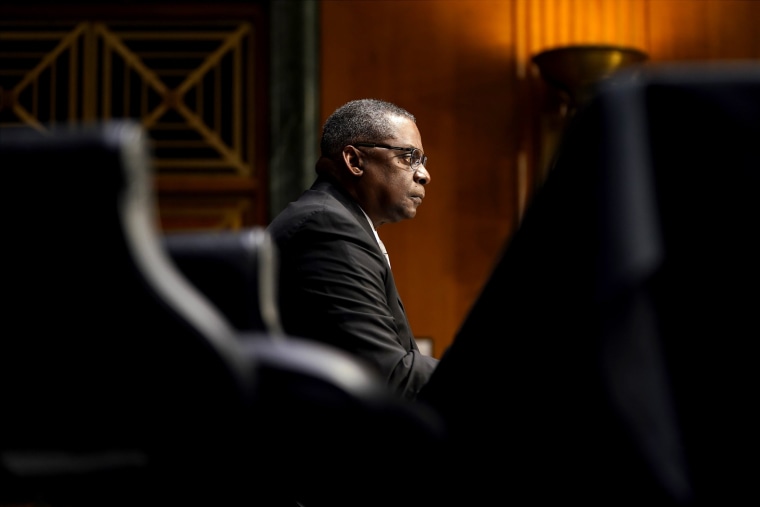WASHINGTON — A Pentagon panel has recommended that commanding officers be stripped of their authority to decide whether troops accused of sexual assault should face prosecution, a Defense official told NBC News.
The recommendation, if adopted, would represent a sea change after years of opposition by senior military officers who have argued that sexual assault cases should be handled within the force’s chain of command. Lawmakers, including Democratic Sen. Kristin Gillibrand of New York, have long demanded such a change as the only way to come to grips with the problem that has plagued the military for decades.
The panel's recommendation was first reported by the Associated Press.
The panel said independent legal authorities within the Defense Department, not commanders overseeing the accused, should assess whether a service member should be charged and whether the case should go to a court martial, said the Defense official, who was not authorized to speak on the record. The recommendation was sent to Defense Secretary Lloyd Austin on Thursday.
The panel also proposed that sexual harassment allegations be investigated outside the chain of command. If a claim is substantiated, the military should start the process to discharge that person from the force even as other legal proceedings are underway, according to the panel’s recommendations.
The proposal came from an independent review commission set up by Austin, who will now await a response from leaders of the military services. Once the military chiefs weigh in in about a month, Austin will make a final decision, the Defense official said.
Austin has said tackling the persistent sexual assault problem in the armed forces is a top priority.
The retired general faced tough questions from lawmakers on the issue at his confirmation hearing in January.
“You do agree that we can’t keep doing the same thing that we’ve been doing for the past decade?” Sen. Gillibrand said at the hearing. “Do I have your commitment to be relentless on this issue until we can end the scourge of sexual violence in the military?”
Austin told the lawmakers: “This starts with me and you can count on me getting after this on Day One.”
The impetus for the panel’s proposed reforms was a widespread perception among many troops that the system is broken and cannot be trusted to deliver justice, the official said.
The recommendation likely would require some additional funding and resources but it remained unclear precisely what would be required, the official said.
Even under these proposed changes, a commander would still have a role in addressing sexual misconduct, by creating an appropriate command climate that prevents sexual assault, harassment and other problems.
Reports of sexual assaults have been on the rise since 2006, according to the Pentagon.
There have been a number of changes in the Military Code of Justice over the past decade to add more civilian oversight to the military’s prosecution of sexual assault cases and to beef up assistance for victims. But the military previously has rejected proposed changes that would take legal decisions out of the chain of command.
Critics have argued that commanders are often biased in favor of their troops, and are sometimes reluctant to press charges against service members under their authority. They also argue victims are fearful that filing a complaint could jeopardize their career and fearful they will not get a fair hearing.
Austin, in his first directive after taking office in January, gave senior leaders two weeks to send him reports on sexual assault prevention programs, and an assessment of what has proven effective.
Then he appointed the independent review commission in February.
The commission is led by Lynn Rosenthal, who said she would pursue sweeping changes that would hold offenders accountable. Ten of the 13 members of the commission are women, and they include prosecutors, prevention specialists, two West Point graduates and experts from the Department of Veterans Affairs and the Centers for Disease Control and Prevention.
Reports of sexual assaults have steadily gone up since 2006, according to department reports, including a 13 percent jump in 2018 and a 3 percent increase in 2019. The 2020 data is not yet available.
Every two years, the Defense Department conducts an anonymous survey that is released along with the annual report on sexual assaults. The most recent survey, done in 2018, found that more than 20,000 service members said they experienced some type of sexual assault, but only a third of those filed a formal report.
The survey number was about 37 percent higher than the previous one two years earlier, and it fueled frustration within the department and outrage on Capitol Hill.
